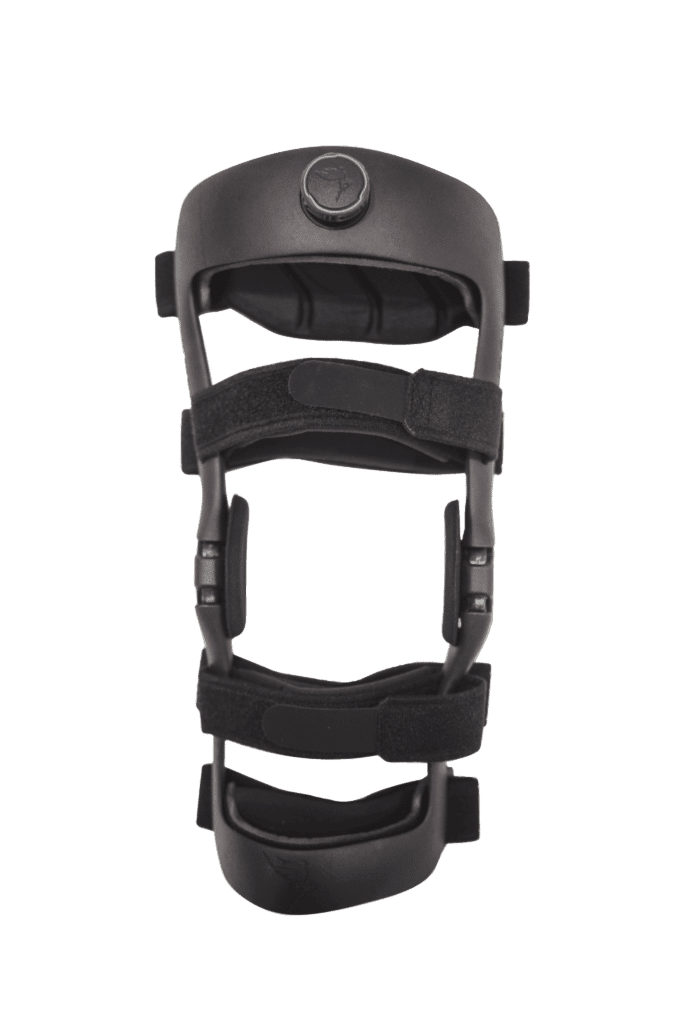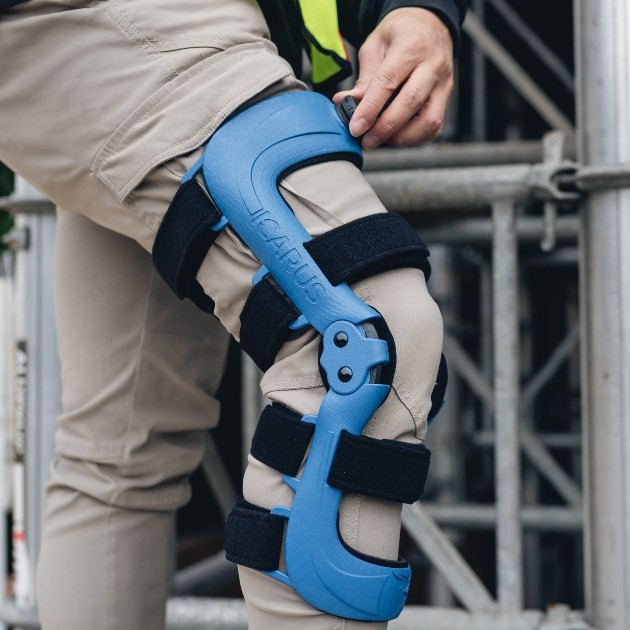Knee injuries from falling can range from minor strains and bruises to more severe damage like dislocations, ligament injuries, and fractures. The severity of any knee injury depends on a range of different determinants; the force of the fall, the angle of impact, and other factors – such as age and overall health.
Common Knee Injuries from Falling
Some common knee injuries that can occur after a fall include:
Contusions (Bruises)
A contusion in the knee arises from the impact of a fall; it is a deep bruise that causes swelling, pain, and discoloration.
Sprains and Strains
Sprains and strains around the knee occur when ligaments (sprain) or muscles and tendons (strain) are stretched or torn after a fall. Symptoms may include pain, swelling, limited range of motion, and instability.
Ligament Injuries
A torn anterior cruciate ligament (ACL) or a medial collateral ligament (MCL) injury are examples of more severe types of injuries called ligament injuries, which result in pain, swelling, and instability in the knee.
Meniscus Tear
A meniscus is a wedge-shaped cartilage in the knee that provides cushioning to the knee. A tear at this region causes pain, swelling, and sometimes a locking feeling (a buckling, popping, or catching sensation) in the knee when you try to move the injured leg.
Fractures
Broken bones or fractures in the knee arise when the fall happens with great force. Fractures result in unbearable pain and often need immediate attention and care or surgical intervention.
Dislocation
In rare cases, a fall causes dislocation of the bones of the knee joint. This is a severe injury that requires quick medical attention.
Home Remedies for a Knee Injury
If you or someone you’re with experiences a knee injury after a fall, it’s essential to rest and avoid unnecessary strain. Some measures to follow at home include:
Ice Compression
To help reduce pain and swelling, apply an ice pack wrapped in cloth to the injury for 15-20 minutes every 1-2 hours.
Elevating the Injured Knee
Keep the injured knee above the heart level when possible; this helps reduce swelling.
OTC Pain Relievers
Over-the-counter pain relievers like ibuprofen (Advil) or acetaminophen (Tylenol) can help fight pain and inflammation.
When to Seek Medical Attention
If the pain is severe, the knee appears deformed, or you suspect a fracture, dislocation, or ligament injury, seek immediate medical attention. Severe injuries may need X-rays, MRI scans, or surgery. It is best to seek the help of a medical professional or a specialist doctor to avoid further complications and discomfort and speed up the recovery process.
How to Treat a Knee Injury from Falling
Treating a knee injury from a fall often involves a combination of self-care measures such as home remedies and seeking medical attention. Many qualified medical professionals recommend the use of knee braces.
Here’s a simple guide to treating a knee injury from falling. However, note that medical attention or the use of a knee brace may be necessary even after applying the following measures.
Take Time to Rest
In cases of less severe injuries and no apparent fracture or dislocation, start by resting the injured knee; do not put pressure or weight on the affected knee.
Immobilization
Keep the affected knee in a stable, comfortable position, avoiding all movement; in such cases, a knee brace will be helpful to immobilize the knee.
Evaluating the Severity of the Injury
Depending on the injury’s seriousness, pain, swelling, deformity, fracture, or discoloration, immediate medical help must be sought. Never attempt to self-treat severe injuries, as this can lead to permanent damage or handicap.
Using a Knee Brace for a Knee Injury
There are various types of knee braces, and the choice of brace depends on the nature of the injury. Each type of knee brace serves a specific purpose.
Elastic or Compression Knee Sleeves
Suitable for mild strains and contusions – compression or elastic knee sleeves provide compression to reduce swelling and may offer mild support.
Unloader Knee Braces
Providing stability, while still allowing for flexibility, unloader knee braces are best for moderate-severe injuries (such as ACL or MCL tears), as well as for those struggling with osteoarthritis.
Hinged Knee Braces
Hinged knee braces are advisable during recovery from ligament injuries or surgery, as they provide stability and allow controlled movement due to the hinges.
Patellar Stabilizing Braces
Focused on stabilizing the patella (kneecap), patellar stabilizing braces are used for conditions like patellar tendonitis or patellar tracking issues.
Treating Your Injury the Right Way
A knee injury from falling may or may not be severe, and recovery depends on several factors. While some wounds may heal with rest, ice, and OTC medication, others may need physical therapy, including the use of high-quality knee braces or surgical intervention. It is essential and always recommended to seek medical intervention (via your physiologist, doctor, or orthopedic specialist) for treatment and rehabilitation if the pain and symptoms persist to ensure the best possible recovery outcome.

